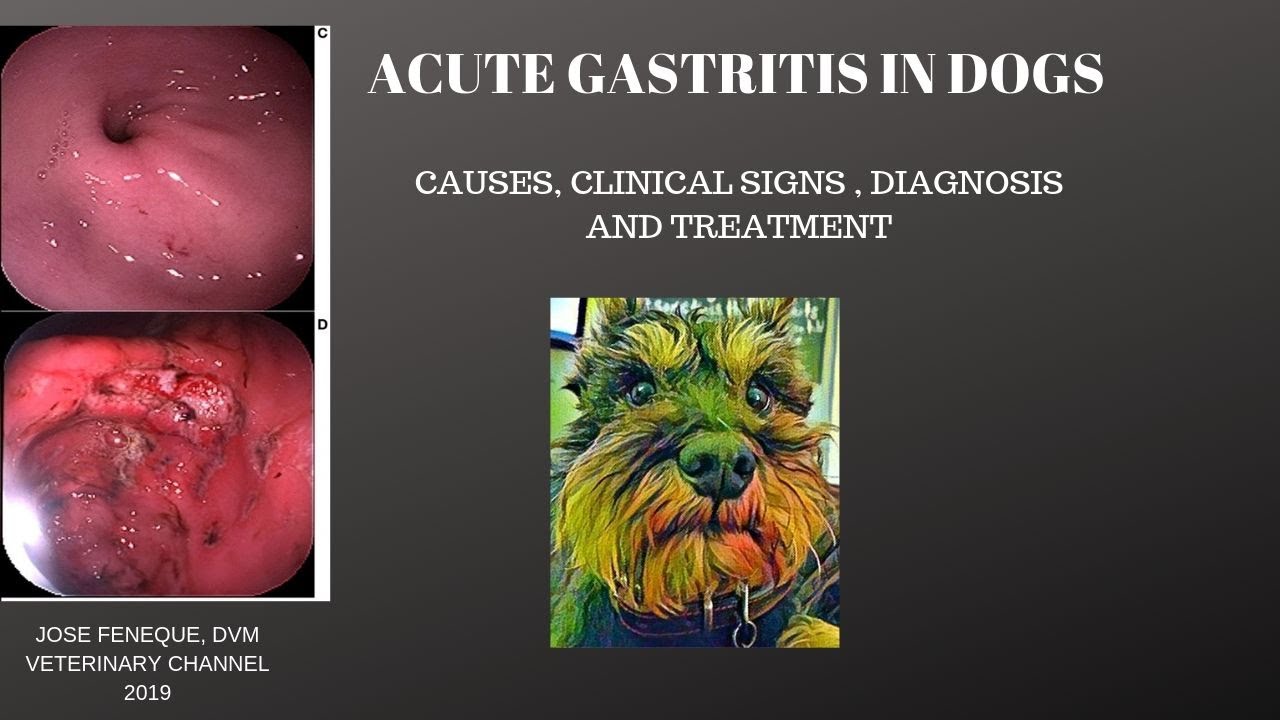Gastritis is one of the most common gastrointestinal conditions in dogs and consists of inflammation of the gastric mucosa and can be acute (sudden and short-lived) or chronic (slow and persistent development). In both cases, this disease is usually not without dogs when proper treatment is followed.
In order to detect it early and prevent the clinical condition of your dog from getting worse, in this article of Animal Expert we will explain the symptoms of gastritis in dogs, the most common causes that cause it, treatment and prevention methods, among other data of interest..
- The main symptoms of gastritis in dogs are vomiting and abdominal pain.
- But other signs of the disease may also appear.
- The most common symptoms of this disease in dogs are:.
Acute gastritis is almost always associated with the consumption of substances harmful to dogs, this can happen because the dog ingests decaying food, ingesting toxic substances (poisons, human medicines, etc.), ingesting in excess, ingesting feces of other animals or not -Digestive substances (plastics, tissues, toys, etc.) This also is caused by internal parasites, bacterial or viral infections, or diseases of other organs such as the kidneys and liver.
If left untreated properly, the acute form of the disease can develop into chronic gastritis, caused by long-term damage to the gastric lining and bacterial flora of the digestive tract; some things ingested by the dog that are not digestible can remain in the stomach without passing through the entire digestive tract, causing irritation and inflammation, such as plastics, pieces of carpet, paper, rubber toys and other items that dogs frequently consume.
Diseases are other causes of chronic canine gastritis.Bacterial infections, viral infections, Carré’s disease, parvovirus, cancer, kidney problems, liver disease and food allergies can cause gastritis in dogs.Persistent chemicals in the environment, such as fertilizers and pesticides, can also cause this form of disease.
Gastritis affects dogs regardless of breed or sex, but there is a risk factor in canine behavior and the irresponsible tendency of some owners: dogs that eat with garbage, walk freely through the streets and often eat the faeces of other animals are more likely to suffer Dogs that eat grass are also likely to be , mainly due to the presence of fertilizers and pesticides.
The initial diagnosis is based on the medical history and symptoms of the dog, in addition, the veterinarian will want to know the animal’s eating habits, if he takes food out of the trash, if he bites furniture and clothes, if he has access to places where poisons or medicines are stored, such as his usual diet and if he has other diseases to treat.He will also physically examine the dog, looking inside the mouth and feeling the neck, chest, belly and flanks.
To diagnose canine gastritis, a blood test may be required to see if there are toxic substances or pathologies that have not been taken into account, and X-rays and ultrasounds may be required to see if there are foreign objects inside the stomach.If chronic gastritis is suspected, the veterinarian may order a biopsy of the gastric lining.
Treatment of canine gastritis usually begins by removing food from the animal for a period of time that can range from 12 to 48 hours, in some cases the veterinarian may also recommend limiting the amount of water without draining it completely.The veterinarian will recommend adequate nutrition, which should usually be administered in small common rations, until gastritis is cured.
If necessary, the veterinarian will prescribe antibiotics, corticosteroids, antiemetics (to prevent vomiting) or other drugs that he deems appropriate for each case.If gastritis is caused by a foreign body in the stomach, the only solution is usually surgery.
Most cases of gastritis in dogs have a good prognosis after treatment, however, gastritis caused by cancer and other systemic diseases may have a less favorable prognosis.
As with most pathologies, the best treatment is always prevention, and to prevent canine gastritis, in Animal Expert we recommend that you consider the following tips:
This article is for informational purposes only, in Animal Expert.com.br we cannot prescribe veterinary treatments or make any type of diagnosis, we suggest that you take your pet to the veterinarian in case of any condition or discomfort.
If you want to read articles similar to Gastritis in Dogs, we recommend that you visit our Intestinal Problems section.

